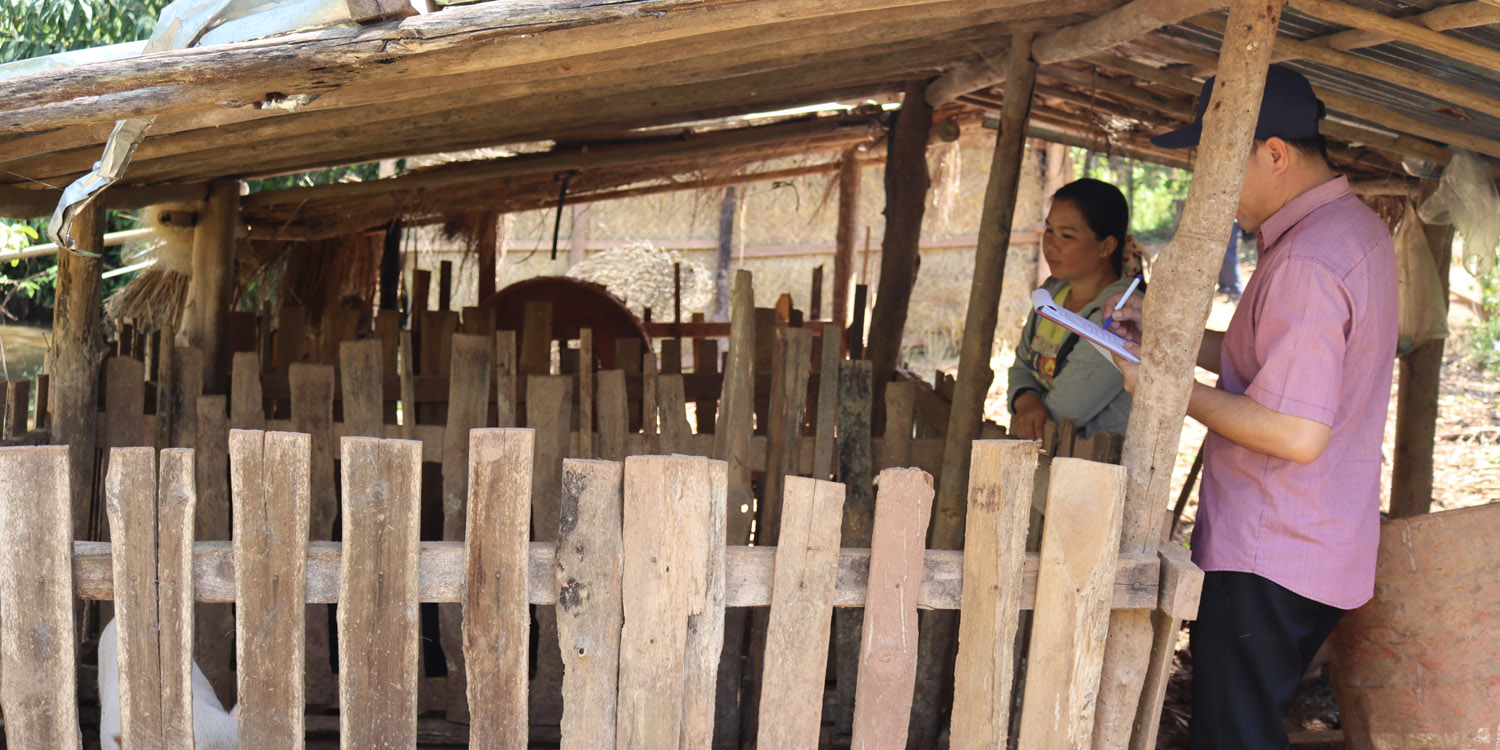Beyond the pilot community: expanding innovative platform approach on smallholder farm biosecurity intervention to more countries
30/08/2023

Beyond the pilot community: expanding innovative platform approach on smallholder farm biosecurity intervention to more countries
©FAO/Soubanh Silithammavong
African swine fever (ASF) poses a threat to the livelihoods and food security of many smallholders and backyard pig farmers. As the situation has evolved to endemicity in Asia and the Pacific, FAO ECTAD has designed a programme to support smallholders in improving their community resilience to ASF. In 2022, the Community ASF Biosecurity Interventions (CABI) was launched, which served as a model for smallholder swine production biosecurity. It was piloted in a community in the Philippines to protect against the spread of ASF.
The CABI is designed to engage smallholder pig farmers and communities in ASF control and rehabilitation. This is done by implementing risk-based interventions to mitigate risks and minimize the impacts of ASF in all participating countries. The CABI model is based on an innovation platform approach that puts the community at the center of the co-creation process. It's designed to be practical, socially and economically acceptable, tailored to meet community needs and promote ownership of practices to ensure sustainability.
With thanks to the Bureau for Humanitarian Assistance (BHA) of the United States Agency for International Development (USAID) and the Ministry of Agriculture, Food and Rural Affairs (MAFRA) of the Republic of Korea, CABI helps communities and farmers apply a systematic, bottom-up approach to designing appropriate biosecurity interventions. Community leaders, who serve as community gatekeepers, village animal health workers, farmers, and other stakeholders, are consulted in the development and involved in the implementation of the biosecurity interventions in their community.
To determine its efficacy and impact on ASF control in smallholder settings, the initial phase of the rolling out of CABI has been carried out in Cambodia, Indonesia, the Lao People’s Democratic Republic, the Philippines and Thailand in 2023. Testing CABI in a variety of local contexts in five countries will help determine the impacts of CABI under different conditions and inform an evidence-based approach for further scaling up.
